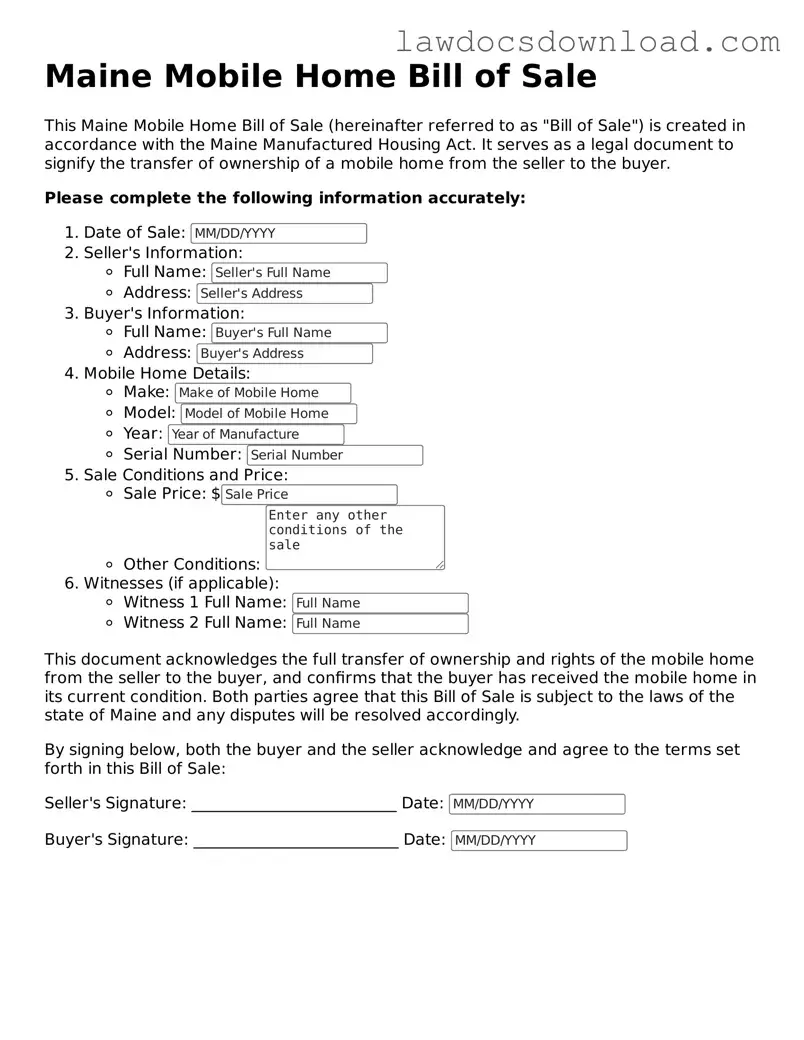The Maine Mobile Home Bill of Sale form shares similarities with the Vehicle Bill of Sale form. Both serve as written records of transactions, vital for documenting the transfer of ownership from seller to buyer. In both cases, these documents need to include key details such as the make, model, year, and identification numbers (VIN for vehicles and serial numbers for mobile homes). They also must capture the sale price, the names, and signatures of both parties involved. This formality ensures the legal transfer of ownership and is essential for registration purposes.
Similar to the Maine Mobile Home Bill of Sale form, the Real Estate Bill of Sale is used in the sale of real property. While the Mobile Home Bill of Sale is specifically for mobile homes, the Real Estate Bill of Sale covers a broader range of property types, including land and buildings. Both documents serve to formalize the agreement between the buyer and seller and must detail the transaction's specifics, such as the property description, the agreed-upon sale price, and the parties' signatures. These forms are critical in establishing a clear record of the transfer of ownership.
Another document akin to the Maine Mobile Home Bill of Sale form is the Boat Bill of Sale. This document is used when buying or selling a boat and, like the Mobile Home Bill of Sale, includes details about the item being sold (e.g., make, model, year, and identification number), the sale price, and personal information about the buyer and seller, including their signatures. These details are crucial for the proper registration and titling of the boat under the new owner's name, similar to how a mobile home would be transferred and registered with the appropriate authorities.
The Maine Mobile Home Bill of Sale form is also similar to the Generic Bill of Sale. The Generic Bill of Sale is a more universal document, used for a wide range of personal property sales, from bicycles to computers. Despite its broader application, its purpose aligns closely with that of the Mobile Home Bill of Sale: to document the particulars of the sale transaction, including the item being sold, the sale price, and both parties' signatures. This documentation is key to proving ownership and resolving any future disputes that may arise.
Lastly, the Firearm Bill of Sale parallels the Maine Mobile Home Bill of Sale in its purpose to document the sale and transfer of ownership of a specific item—in this case, a firearm. Both documents require detailed identification of the item sold (including serial numbers for firearms), information on the buyer and seller, the sale price, and signatures from both parties. While they cater to different types of property, both forms are essential for legally transferring ownership and can be important for the registration process or proving ownership in legal situations.

